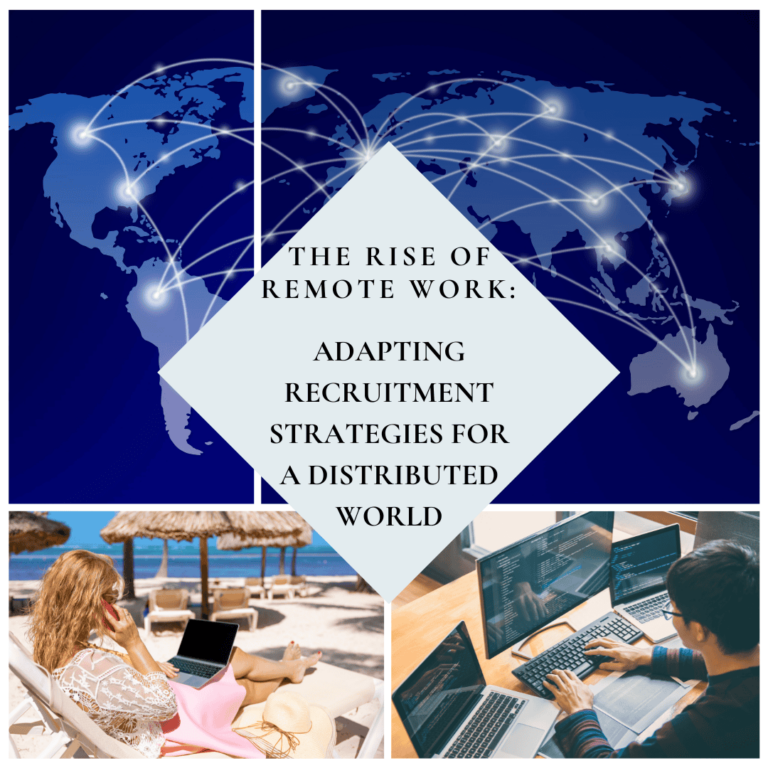
Remote work has moved from a niche option to a mainstream mode due to technological advancements and recent global events, prompting changes in recruitment strategies worldwide. This article explores the transition required in recruitment methods to accommodate a distributed workforce, and how companies can thrive in this new environment.
The Evolution of Remote Work
- Growth Trends: Even before the pandemic, remote work was increasing in popularity, a trend that exploded as businesses adopted remote policies during the pandemic. A Gallup report from 2020 showed that 62% of Americans worked from home during the peak of the pandemic.
- Implications for Recruitment: With the ability to hire globally, companies have access to a broader skill base, increasing diversity and opportunity but also presenting new recruitment challenges.
Redefining Recruitment for Remote Work
- Digital Tools: The shift to remote work has prioritized tools like LinkedIn, Zoom, and applicant tracking systems, essential for managing recruitment processes remotely.
- Criteria for Selection: Modern recruiters assess not only technical skills but also the ability to work independently, manage time effectively across time zones, and communicate efficiently in virtual settings.
Virtual Job Fairs: A Gateway to Global Talent
- Global Reach: Virtual job fairs break down geographical barriers, allowing companies to connect with talent worldwide.
- Technological Advantages: These fairs utilize live chats, webinars, and virtual meeting rooms, providing platforms for real-time interviews and networking.
- Efficiency and Accessibility: Virtual job fairs save time and resources and are more accessible to candidates from different backgrounds, enhancing diversity in recruitment.
To read more about the how virtual recruiting events can attract talent for remote work click here.
Challenges and Solutions in Remote Recruitment
- Cultural Fit: Virtual interactions make it harder to assess a candidate’s fit within a company’s culture. Solutions include using video interviews and virtual tours.
- Time Zone Differences: Automated scheduling tools and asynchronous communication methods help manage interviews and collaborations across various time zones.
Future Trends in Remote Recruitment
- Artificial Intelligence and Machine Learning: These technologies are streamlining recruitment by automating the screening process and improving job-candidate matching.
- Importance of Soft Skills: Skills like adaptability and teamwork are crucial for remote work. New tools are being developed to evaluate these skills effectively in a remote context.
Conclusion
The transition to remote work is reshaping recruitment strategies. Companies need to adopt new tools, refine their criteria for candidate selection, and implement innovative recruitment methods like virtual job fairs to stay competitive.
We encourage our readers to share their experiences with remote recruitment or reach out for guidance on adapting their hiring strategies. Let’s collaborate to build more connected and efficient global workforces.

